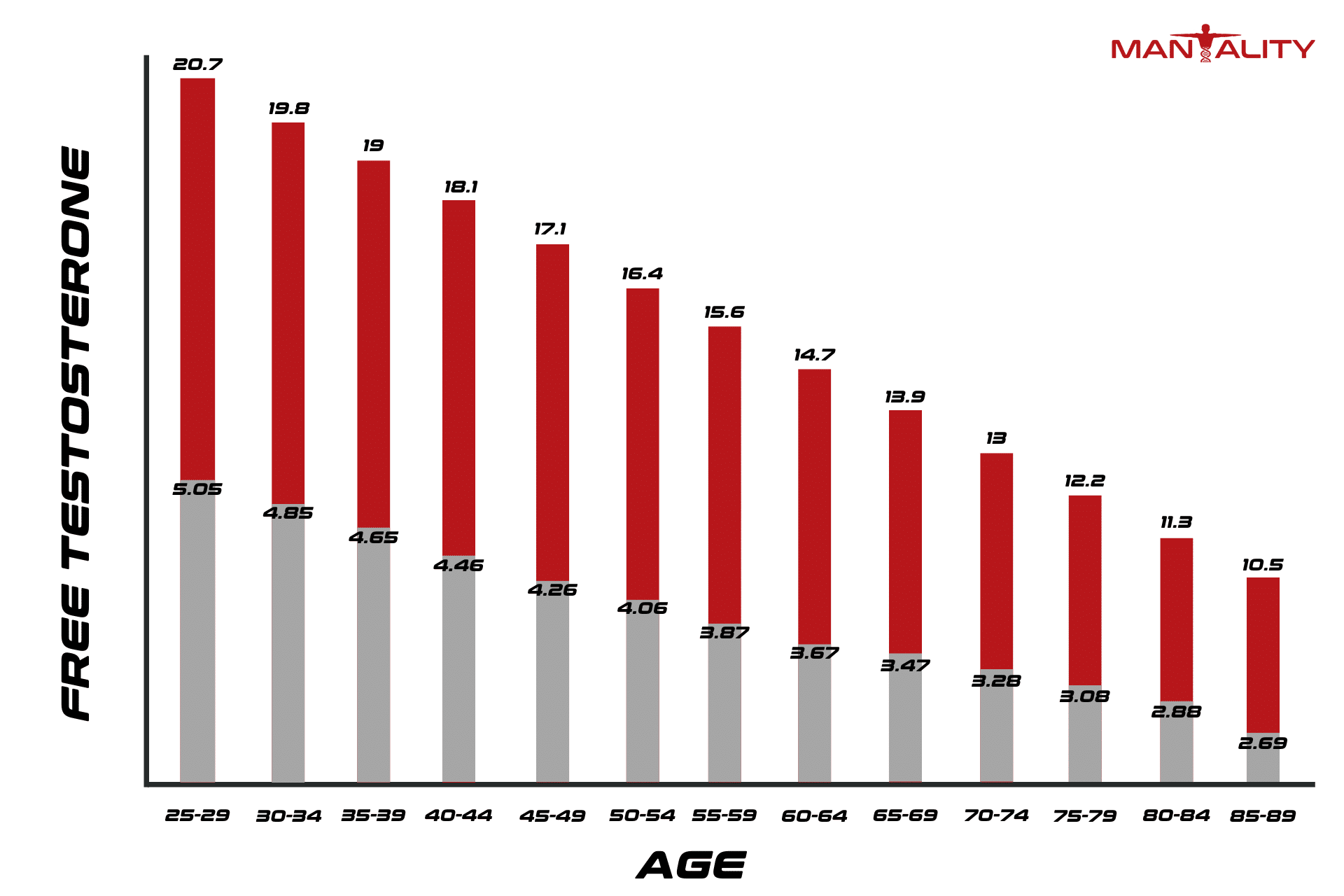As men age, their bodies produce less testosterone, which can lead to various physical and emotional changes. One significant change that often goes unnoticed until it affects daily life is the impact on mood. Low testosterone levels can cause feelings of sadness, irritability, and even depression. This hormonal shift can make everyday activities feel overwhelming and affect how we interact with others.
Understanding the link between testosterone and mood is crucial for men in the 35-54 age group. When testosterone levels dip, it can alter brain chemistry, making it harder to enjoy life and stay mentally balanced. For those dealing with these symptoms, it can feel like a fog that just won’t lift.
At Mantality Health, we aim to shed light on these issues and offer solutions. Testosterone therapy can help restore balance, improve mood, and bring back the enthusiasm for life that many men feel they’ve lost. Our goal is to provide comprehensive support, tailored to each individual’s needs, so they can regain control over their emotional well-being.
Understanding Low Testosterone and Its Impact on Mood
Testosterone is a key hormone in men that affects many aspects of health, including mood. When testosterone levels decline, which often happens as men age, it can lead to various mood issues. Low testosterone can cause feelings of depression, irritability, and fatigue. These symptoms occur because testosterone influences neurotransmitters in the brain that are responsible for regulating mood. For men aged 35-54, these changes can be frustrating and impact both personal and professional life.
We also see that low testosterone can lead to increased anxiety levels. When the body’s balance of hormones is off, it can create a sense of unease and stress. Men with low testosterone might find themselves feeling more worried or nervous about things that never used to bother them. This disruption in mood can affect relationships and quality of life, making it crucial to address testosterone levels as part of managing mental and emotional well-being.
How Testosterone Therapy Works to Improve Emotional Well-Being
Testosterone Replacement Therapy (TRT) is designed to restore low testosterone levels to a healthy range, helping to stabilize mood and improve emotional well-being. TRT works by providing the body with the testosterone it needs to function correctly, which in turn affects the brain’s chemistry. When testosterone levels are balanced, men often experience better mood regulation. This means fewer mood swings, reduced feelings of depression, and a more positive outlook on life.
The therapy involves regular administration of testosterone via injections, patches, or gels, allowing for a steady level of testosterone in the bloodstream. By maintaining this balance, TRT can help reduce irritability and promote a calmer, more stable mood. Many men find that their overall sense of well-being improves, making them feel more like themselves again. It’s not just about physical health; TRT plays a significant role in mental and emotional health, helping men lead happier and more fulfilling lives.
Key Benefits of Testosterone Therapy for Mental Health
Testosterone Replacement Therapy (TRT) offers several benefits for mental health. One of the most noticeable improvements is in mood stabilization. With optimal testosterone levels, fluctuations in mood are reduced, leading to a more balanced emotional state. This is crucial for those who have been suffering from irritability, anxiety, or sudden mood swings due to low hormone levels.
Another significant benefit is the enhancement of overall mental clarity. Many men report experiencing the disappearance of “brain fog,” making it easier to concentrate and remember things. Improved mental clarity can lead to higher productivity at work and a better ability to manage daily tasks. Additionally, TRT can improve sleep quality, which directly impacts mental health. Poor sleep is closely linked to depression and anxiety, so improving sleep patterns can result in a more positive outlook on life.
Tips for Maximizing Mood Benefits of Testosterone Therapy
While Testosterone Replacement Therapy is effective, certain lifestyle adjustments can enhance its mood-boosting benefits. Here are some tips to help maximize the overall benefits of TRT:
1. Healthy Diet: Eating a balanced diet rich in fruits, vegetables, lean proteins, and healthy fats can influence hormone balance and improve your mood. Avoid processed foods and excessive sugar intake to keep your body running smoothly.
2. Regular Exercise: Regular physical activity helps maintain testosterone levels and improves mental health. Incorporate both cardiovascular exercises and strength training into your routine for the best results.
3. Adequate Sleep: Ensure you get 7-9 hours of quality sleep each night. Sleep is vital for hormone production and emotional well-being. Stick to a regular sleep schedule and create a restful environment.
4. Stress Management: Practice relaxation techniques such as deep breathing, meditation, or yoga to manage stress levels. High stress can negatively impact testosterone levels and mood.
5. Social Connections: Maintain healthy relationships and social interactions. Engaging with friends and family can offer emotional support and improve overall mental health.
Integrating these lifestyle changes with TRT can lead to a more profound improvement in mood and overall quality of life.
Conclusion
Maintaining optimal testosterone levels is essential for reducing stress and improving mental well-being, especially for men over 35. Testosterone Replacement Therapy provides a valuable solution for those struggling with mood instability and anxiety due to low hormone levels. By restoring testosterone, we can achieve emotional balance, mental clarity, and a more stable mood. Alongside TRT, making simple lifestyle changes like improving diet, exercising regularly, and managing stress can amplify these benefits.
Don’t let low testosterone levels control your mental health. At Mantality Health, we’re dedicated to helping men reclaim their lives through optimized testosterone levels. If you’re experiencing stress and anxiety and suspect your testosterone levels may be the cause, contact us today. Let us help you take the first step towards a healthier, happier you.




